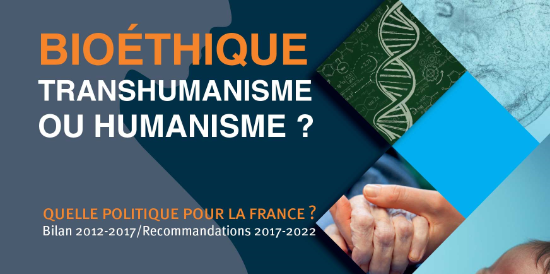As the French president’s mandate is coming to its end, it makes sense to do a bioethics stocktaking[1]. Jean Marie Le Méné, President of the Jérôme Lejeune Foundation speaks of the broad patterns that have emerged from François Hollande’s mandate.
Gènéthique: According to you, what are the main features of this mandate concerning bioethics?
Jean-Marie Le Méné: What hits my mind is the great number of reforms: abortion, medically assisted procreation, end of life, euthanasia, embryonic research, surrogacy, organ donation, eugenics, and Down Syndrome stigmatization. These changes were voted outside the framework of bioethical laws that are to be reviewed in 2018. They were forced into the parliamentary agenda by the presidential majority, avoiding public debate and often voted in secret in general indifference, sometimes drowned amidst a thousand other apparently more important laws. The choices made are problematic when they include questions as sensitive as ones related to human life. It is all the more serious as the approach is deliberately transgressive, imposing both a liberal and a libertarian vision, thus paving the way to transhumanism.
G: What do you think were the reasons that led to the adoption of these texts.
JMLM: The government relied on a certain number of driving forces.
The first motor which legitimized these social reforms is compassion. Thus, research on embryos was extended, using the pretext of giving hope to patients awaiting a treatment from research. But over the last 20 years in France and nearly 40 years in Great-Britain, no probing result has been obtained. Using compassion and the right of sterile couples to have children as a pretext, medically assisted procreation turned all logic inside-out: children are no longer welcomed, they are produced. It is also in the name of compassion that the government adopted the principle of presumed consent concerning organ donation, supported by a utilitarian logic and a concept in which the body is a simple material which society can dispose of.
The second driving force is autonomy, erected as an absolute value.
Using women’s autonomy as an argument, the government worked at removing every last safeguard which provided a framework for the decision-making: suppression of criminal obstruction, suppression of the delay of reflection. Access to abortion became easier when midwives were given the right to carry out medical abortions, and quotas were fixed according to the number of live births… These measures led to the trivialization of an act that takes out lives, and which painful consequences are strongly felt. And because abortion is now legitimate for women, people no longer listen to their suffering, leaving them with a feeling of terrible loneliness.
But it is also in the name of autonomy that, once the government chose to legalize deep and continuous sedation until death, sick people and people whose lives are coming to an end became volunteers to a death sentence. This sedation involves stopping food and hydration now clearly considered as treatments. This step forward towards legalizing euthanasia pressurizes people into choosing death rather than agreeing to help others get through the humble humanity of their final moments. How many families remain hurt after one of their own was robbed of his/her final days? Within this context, the situation in which Vincent Lambert stands clearly shows the merciless relation society has recomposed with its most fragile members.
G: What is the social meaning of these changes?
JMLM: On a scientific level, progress, of which the finality has become unclear, is no longer bound by limitations. Anything going in the sense of progress is right, anything going against it is wrong. Within this context, any regulation, experienced as an insufferable constraint, is bound to be cast aside.
Besides, I believe that these reforms are quite typical of a change in the ethical values of our society, replaced by a eugenic, financial, and transhumanist logic. De facto, for issues such as medically assisted procreation, surrogacy, and Down Syndrome testing for example, the path set by technique and the market has taken over. Manipulations within the framework of reproduction techniques have led us to consider the human embryo an object, which, after having been sorted, allows eugenics to step in. It is a convenience form of eugenics, fully assumed in the case of Down Syndrome, and which serves the myth of the perfect child, first step towards an augmented, faultless man.
Finally, serious limitations to the freedom of expression question the very foundations of the social contract. Thus, a film staging children with Down Syndrome was censured, while giving out information on abortion is now considered a crime because not in line with the “truth decided upon by the State”.
It is about time we went back to the coherence of the founding principles that our society has forgotten, in order to open a way compatible with human dignity.
[1] “Bioéthique, transhumanisme ou humanisme? Quelle politique pour la France?” , a reference document published by the Jérôme Lejeune Foundation, presents and analyses the reforms of these past five years and offers a series of recommendations for each subject.

